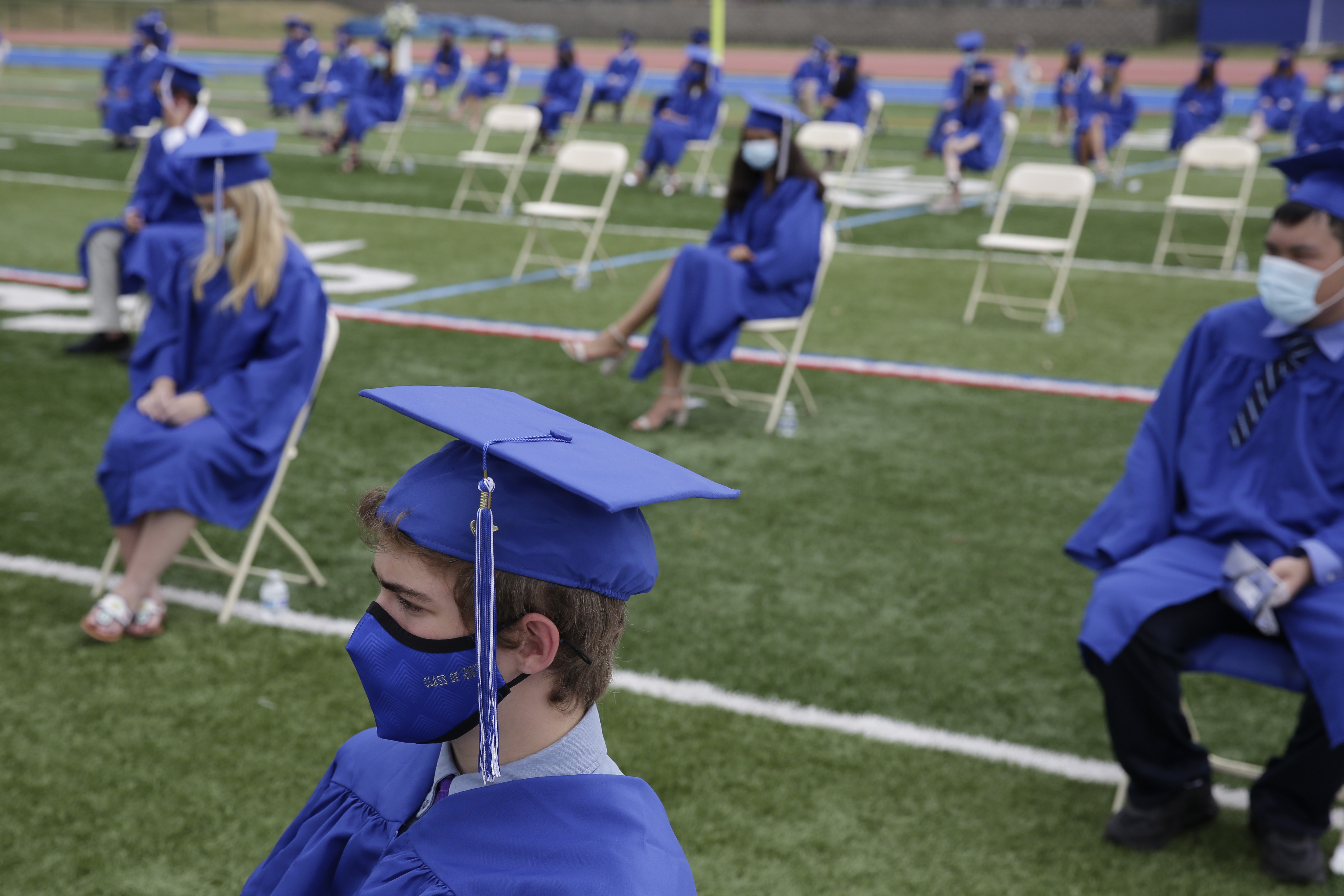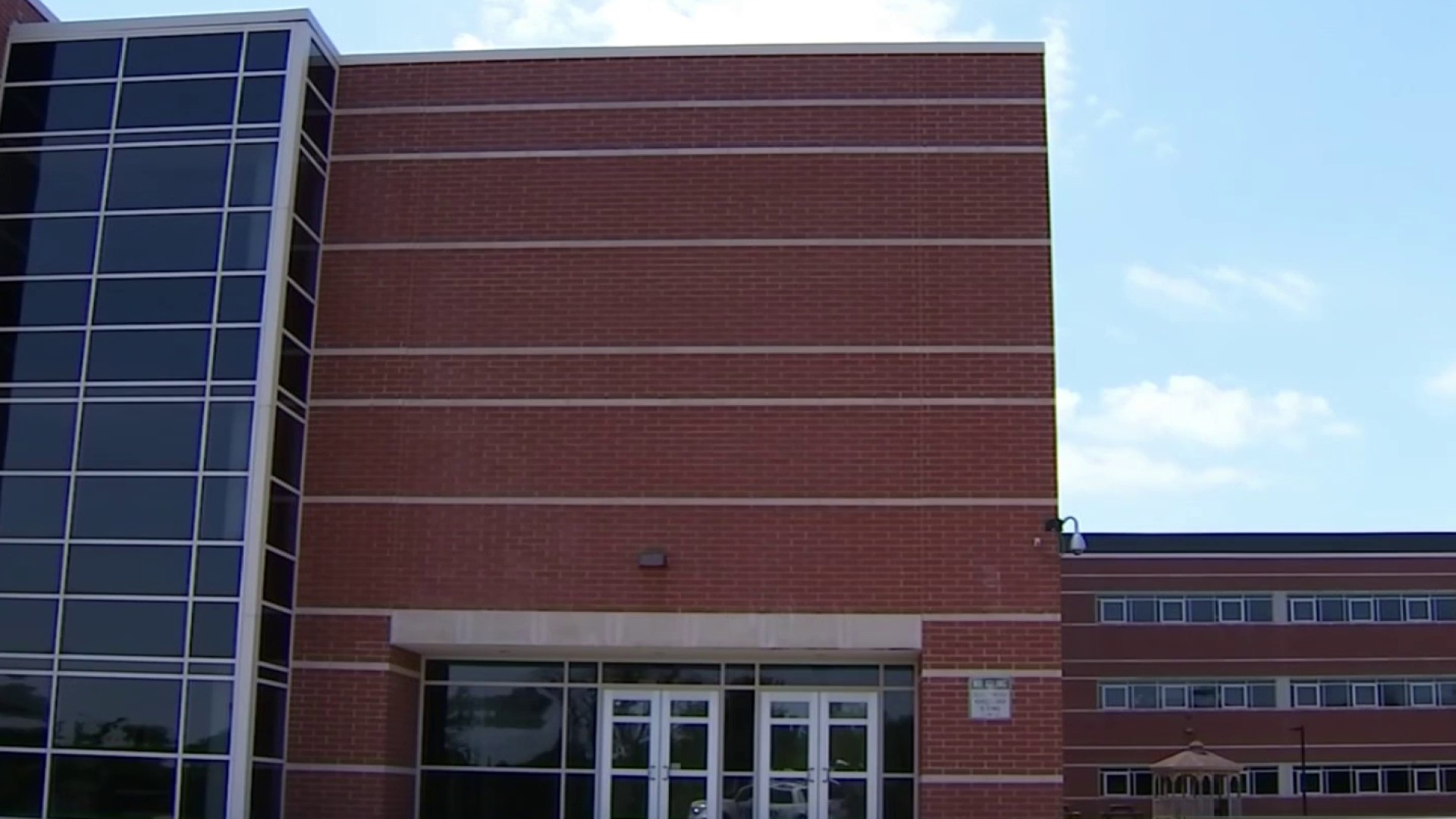Laura Sacco and her staff at Charlestown Playhouse in Chester County are building new outdoor structures to provide shelter to the little students attending her preschool next year.
They'll occasionally need something overhead because the school of roughly 75 children will be blazing a new trail in education: They will be the first fully-outdoors class to attend the school that dates to 1936.
"We’re really fortunate. The yard is big. It’ll be split into four spaces. Students will be in one space for two weeks, then move to the next one," Sacco, the head of school, said. "We'll have teepees, zip lines, places for kids to explore. But we're telling parents that kids have to come prepared for weather. That means rain gear, snow gear."
She said the school building will still be available on rare occasions.
"We do have the building right there for emergencies," Sacco said. "Really, the building is just going to be for emergencies and toileting."
Not all schools or school districts are the same, however, and each local education system is gearing up in their own ways to confront the first full school year of the COVID-19 pandemic.
Districts like Lower Merion are allowing families to choose between a hybrid of some in-class learning and some virtual learning or a fully virtual experience come September. It is called the Lower Merion Virtual Academy.
Others like Philadelphia, where a larger number of students don't have access to the broadband internet in their home, are trying to provide as much in-class learning as possible. But the city district will also offer a mix of at-home learning and in-class instruction.
"We will prioritize socially distanced face-to-face learning whenever possible, especially for students with complex needs and our youngest learners who research suggests benefit most from face-to-face instruction," Philadelphia Schools Superintendent William Hite Jr. said. We recognize that there may be families who, for many reasons, may not feel comfortable with face-to-face learning so digital learning for all or part of the school year also will be available as an option."
Educators who have long pushed for innovations in learning are hopeful that school districts will take advantage of the crisis to implement new ways of teaching students.
"This is a chance to think way out there, to get super creative," John Gamba, the inaugural entrepreneur-in-residence at University of Pennsylvania's Graduate Education School, said. "There are models like micro-schools and pod approaches that are starting to get some thinking about innovative approaches: You can have 4-5 students working with master teachers; it could be a much more immersive and micro-focused learning environment; it could mean gym by running the Rocky steps and visits to museums for art class when they open."
He said now is the time "to break the conventional mold of learning."
That's not what's happening in every school district of the Philadelphia region, and it's disappointing, Ryan Baker, director of the University of Pennsylvania Center for Learning Analytics, said.
"Over the summer, I would’ve thought we’d have saw a really active jumping into what can be done out there," Baker said of districts exploring technological advances in learning. "This is a fascinating historical moment because we have the technology and we’ve had it for a while now. But it’s been disappointing so far to see largely, societally, we’re going with our minimal adaption."
Baker believes districts and educators are overwhelmed by the sudden need to shift dramatically to online-based learning strategies.
He said better technology than most districts and teachers utilized at the end of the previous school year has been available for years.
Most students were forced to use a combination of teleconferencing like Zoom or Microsoft Teams and a "learning management system," Baker said.
"Mostly, it went pretty poorly," he said of the digital learning strategies from mid-March onward.
But learning management systems, which are essentially worksheets and reading materials uploaded to a server that students can access, are outdated compared to newer "adaptive learning systems."
Those allow a much more personalized approach to teaching students, Baker said.
"There are systems out there that as the student is working on a problem, it’ll break it down, say, if the student got it wrong, or give them a hint, or give feedback," he said. "And students can learn at their own pace. If they're learning geometry, for instance, some students will need extra time on ratios and proportions, and others will struggle on area and perimeter."
He hopes school districts implement technology more thoughfully next school year.
"I know that I find 15-to-20 person Zoom meetings dreadful," Baker said. "Now imagine being a 7-year-old."



